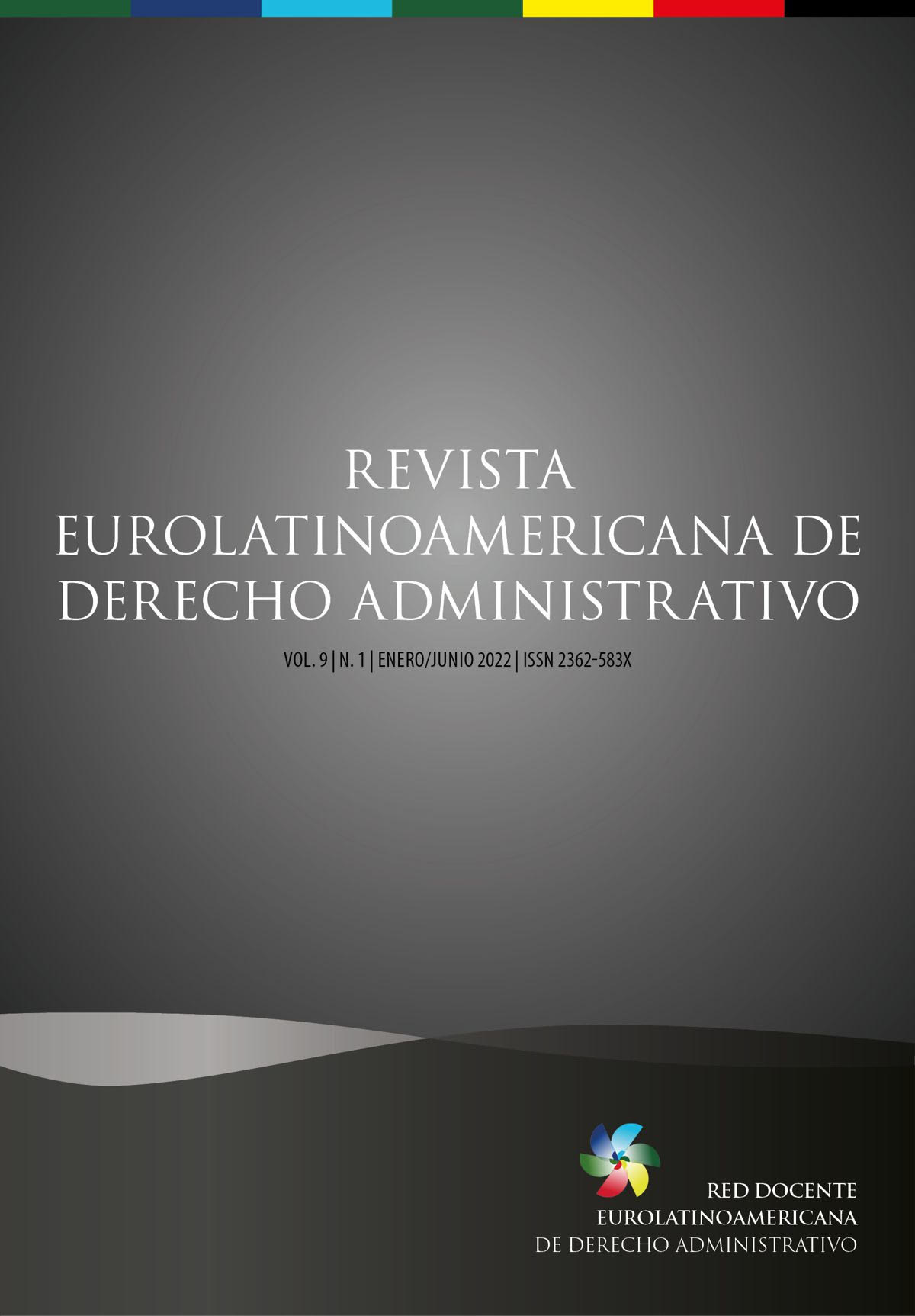Automatic administrative act in the tax procedure: an analysis of the automatic suspensions provided for in the Argentine Customs Code
DOI:
https://doi.org/10.14409/redoeda.v9i1.11819Keywords:
tax procedure, customs suspensions, automatic administrative act, Custom code, ArgentinaAbstract
In this work I aim at defining the electronic administrative act, its characteristics and regulation locally, as well as in the comparative law. Then, I focus on customs regulation, particularly on automatic suspension of custom records – custom brokers and other system agents – disposed by the Administrative Authority. I also analyze judicial decisions related to automatic suspensions provided by Act 22.415 of the Customs Code. I enquire about fiscal intelligence in tax procedure in the light of social constitutional rule of law. Finally, I raise some thoughts in order to seek answers to the following questions: Are the suspensions provided without any further procedure in the Customs Code, Act 22.415, electronic administrative acts? If this is the case, are they consistent with the constitutional social rule of law?
References
BASUALDO MOINE Alejo Osvaldo. Aspectos teorico-practicos de la responsabilidad del despachante de aduana. 29 nov. 2013. Disponible en: <https://www.despachantesargentinos.com/detalle_noticia.php?id=4815>.
CENTRO INTERAMERICANO DE ADMINISTRACIONES TRIBUTARIAS [CIAT]. Manual CIAT Sobre Inteligencia Fiscal, 2006. Disponible en: <https://www.ciat.org/Biblioteca/DocumentosTecnicos/Espanol/2006_Manual_CIAT_sobre_Inteligencia_Fiscal.pdf>.
COMADIRA, J. R. El acto administrativo: en la Ley Nacional de Procedimientos Administrativos. Buenos Aires: La Ley, 2011.
CORVALAN, Juan Gustavo. Inteligencia artificial y derechos humanos – Parte II. Diario DPI. 07 jul. 2017. Disponible en: <https://dpicuantico.com/area_diario/doctrina-en-dos-paginas-diario-constitucional-y-derechos-humanos-nro-157-10-07-2017>.
FILGUEIRAS JÚNIOR, M. V. El carácter involuntario del acto administrativo automático y normativo del acto-programa. Simposio Argentino de Informática y Derecho, La Plata, p. 102-115, 2018. Disponible en: <http://sedici.unlp.edu.ar/handle/10915/71808>.
GAMERO CASADO, E; FERNÁNDEZ RAMOS, S. Manual Básico de Derecho Administrativo. Madrid: Tecnos, 2017.
GATTI, F. Convencionalidad y Derecho Tributario. El Tribunal Fiscal de la Nación frente al control de constitucionalidad y convencionalidad. Cartapacio de Derecho, v. 31, p. 1-27, 2017.
GUTIERREZ COLANTUONO, P. A. Administración Pública, Juridicidad y Derechos Humanos. Buenos Aires: AbeledoPerrot, 2009.
LACAVA, F. Acto Administrativo Automático en el marco del Estado Constitucional de Derecho. El Derecho: Diario de Doctrina y Jurisprudencia, Buenos Aires, n. 14767, p. 1-38, 2019.
MALVESTITI, D. N. La informática tributaria y la relación fisco-contribuyente: De la igualdad procesal al soterramiento del derecho de defensa. Consejo Profesional de Ciencias Económicas de la Ciudad Autónoma de Buenos Aires. [s.f.]. Disponible en: <https://archivo.consejo.org.ar/congresos/material/19tributario/Malvestiti.pdf>.
PATRICIOS, J. A. La suspensión automática prevista en el Código Aduanero para los auxiliares de la Aduana con motivo del procesamiento por delitos aduaneros. Mercojuris. 12 ago. 2012. Disponible en: <https://www.mercojuris.com/5951/la-suspension-automatica-prevista-en-el-codigo-aduanero-para-los-auxiliares-de-la-aduana-con-motivo-del-procesamiento-por-delitos-aduaneros>.
RODRIGUEZ, T. Machine Learning y Deep Learning: cómo entender las claves del presente y futuro de la inteligencia artificial. Xataka. 27 ene. 2017. Disponible en: <https://www.xataka.com/robotica-e-ia/machine-learning-y-deep-learning-como-entender-las-claves-del-presente-y-futuro-de-la-inteligencia-artificial>.
SANCHO CAPARRINI, F. Aprendizaje supervisado y no supervisado. 14 dic. 2020. Disponible en: <http://www.cs.us.es/~fsancho/?e=77>.
STRASSER, I. Interdicciones en el Código Aduanero para los deudores en Concurso Preventivo. Régimen actual. Reflexiones sobre los efectos del proceso concursal preventivo. Revista Argentina de Derecho Administrativo, Buenos Aires, n. 6, p. 1-18, 2005.
VALSECCHI, A. Algoritmo, discrezionalità amministrativa e discrezionalità del giudice (nota a Cons. Stato, sez. VI, sent. del 4 febbraio 2020, n. 881). Iusitinere, Napoli, 14 sept. 2020. Disponible en: <https://www.iusinitinere.it/algoritmo-discrezionalita-amministrativa-e-discrezionalita-del-giudice-nota-a-cons-stato-sez-vi-sent-del-4-febbraio-2020-n-881-306300>.
VIDAL ALBARRACIN, H. Delitos aduaneros: leyes 22.415, 23.353, 24.415 y 25.986 y comentario sobre legislación comparada. 3. ed. Buenos Aires: Mave, 2010.
Downloads
Published
How to Cite
Issue
Section
License
Copyright (c) 2022 Sergio Carullo

This work is licensed under a Creative Commons Attribution 4.0 International License.
Authors who publish in this Journal agree to the following terms:
- Authors retain copyright and grant the Journal of Constitutional Research the right of first publication with the article simultaneously licensed under the Creative Commons - Attribution 4.0 International which allows sharing the work with recognition of the authors and its initial publication in this Journal.
- Authors are able to take on additional contracts separately, for non-exclusive distribution of the version of the paper published in this Journal (eg.: publishing in institutional repository or as a book), with a recognition of its initial publication in this Journal.
- Authors are allowed and encouraged to publish their work online (eg.: in institutional repositories or on their personal website) at any point before or during the submission process, as it can lead to productive exchanges, as well as increase the impact and the citation of the published work (see the Effect of Open Access).



























.png)





